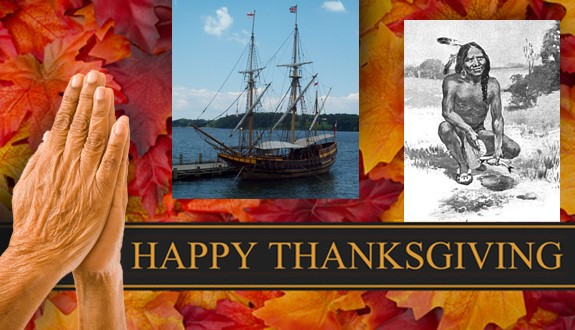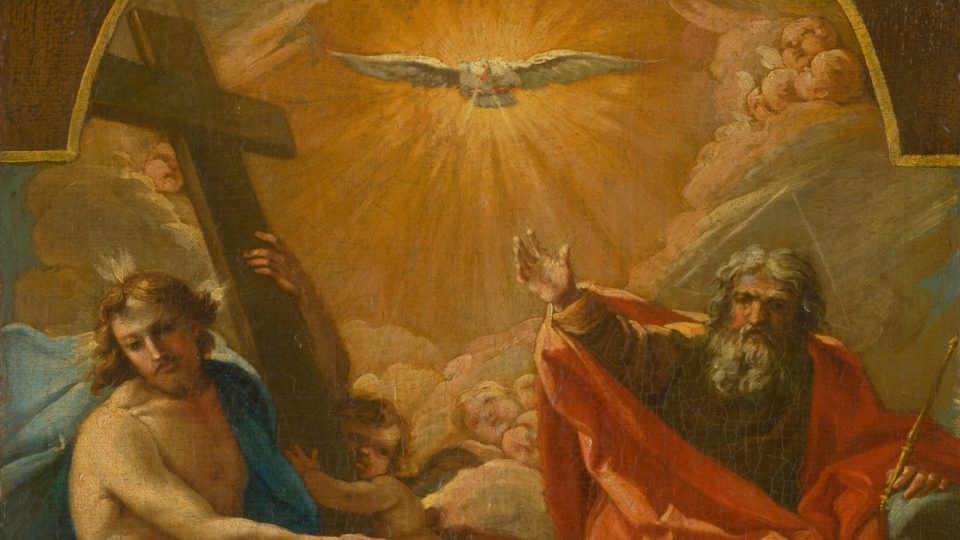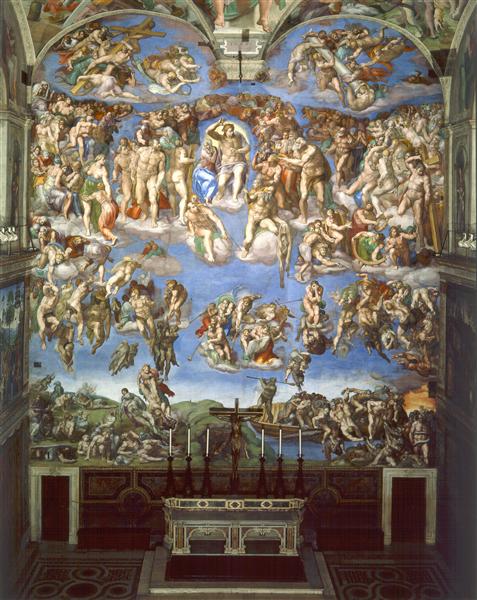By Dale Ahlquist, Catholic World Report, November 27, 2019
Dale Ahlquist is president of the Society of Gilbert Keith Chesterton, creator and host of the EWTN series “G.K. Chesterton: The Apostle of Common Sense,” and publisher of Gilbert Magazine. He is the author and editor of several books on Chesterton, including The Complete Thinker: The Marvelous Mind of G.K. Chesterton.
Myths about the pilgrims and religious freedom have obscured some surprising truths about this great American holiday.
Did you know that Thanksgiving is a Catholic holiday? True, it’s not on the Church calendar. And it is celebrated only in America, whereas Church holidays are universal.
Our national holiday is certainly an event that has taken on a life of its own, with an established tradition involving turkey and mashed potatoes, football, shopping, and a four-day weekend—which is fascinating since none of those things have anything to do with the original event that gave rise to annual celebration on the fourth Thursday in November. But any time a nation does anything in unison that involves families getting together and counting their blessings, it is a good thing. “Thanks,” says G.K. Chesterton, “is the highest form of thought.” And he mentions the fact that the worst moment for an atheist is when he is thankful and suddenly realizes he has no one to thank.
But what is the origin of this holiday?
What most people believe is a variation on what I was taught in public school in the 1960s. The Pilgrims came to Plymouth on a ship called the Mayflower. They were the first English settlers in America. They came for religious freedom. And they had a big feast with Indians, and that was the first Thanksgiving. That about sums it up. And that is what Chesterton calls “The Myth of the Mayflower.”
First of all, they were not known as “pilgrims” till about 200 years afterwards. They were Puritans, a radical Anglican “low church” sect that loathed the “high church” Anglicans that happened to include the King of England. In fact, about 30 years after the Puritans arrived in America, some of their fellow Puritans back in England arranged for King Charles I to have his head chopped off.
Secondly, there were at least nine other British settlements before the Plymouth colony. In fact, one of them was at Plymouth. All but one of them failed, including the first settlement at Plymouth. The Puritans who came to Plymouth in 1620 almost didn’t survive. Half the settlers died the first winter. They were saved by a Native American named Squanto, who taught them how to hunt and fish and grow corn.
But here’s what is really interesting: Squanto was a Roman Catholic.
In 1614, he had been captured by an English party led by Captain John Smith (of Pocahontas fame) and taken on a ship to Spain where he was to be sold as a slave. He was rescued by some Dominican friars who instructed him in the Catholic faith. He told them he wanted to return to his people in America. They helped him get to England, where he met John Slaney, who taught him English and arranged for him to get to Newfoundland. Squanto served as an interpreter between the English and the Indians and crossed the Atlantic six times. He was never able to return to his own tribe, because they had been wiped out in a plague.
After he came to the aid of the Plymouth settlers, helping them grow their own food, he arranged for a joint harvest feast with the local Wampanoag tribe. It was this event that is the basis of our Thanksgiving holiday. So Thanksgiving was started by a Native American Catholic. Ironically, the Wampanoag tribe later took Squanto hostage because they distrusted him, and he was rescued by the English. It is possible that the Indians poisoned him, which led to his death shortly afterwards in 1622.
And then there is this other thing we never learned in school: In 1621, the year after the Puritans arrived at Plymouth, another group of English settlers arrived in Ferry, Newfoundland. The land had been granted to George Calvert, the First Baron of Baltimore. Calvert’s son, Cecilius, the Second Baron of Baltimore, was granted another chunk of the New World, which he settled in 1632. He called it Maryland. Why did England give this land to George Calvert and his son? As compensation for the fact the George Calvert had been stripped of his title of Secretary State. And why had he been stripped of his title? Because he declared that he was a Roman Catholic. Maryland (named for some woman whose name was Mary) was the first English Catholic settlement in the New World, and one of its founding principles was…freedom of religion.
The Puritans up the coast get all the credit for establishing freedom of religion, but they did not do it. They were actually quite opposed to the idea. They were anything but tolerant. In fact, it was their intolerance that caused them to come to the new world, not persecution. England was not Puritan enough for them. They did not think the Stuarts had gone far enough to do away with the elements of Catholicism that still remained in the Church of England. Puritan intolerance led the eventual execution of King Charles I (whose wife and children were Catholic). Puritan intolerance was further demonstrated by a course of events in another Puritan settlement established just six years after the one in Plymouth, just down the road, had there been a road. It was called Salem. It was there that anyone who departed from a strict Puritan practice was in danger of being burned as a witch. Chesterton points out that the Puritans lost their belief in priests but kept their belief in witches.
So the Catholics deserve the credit not only for the first Thanksgiving, but for the first real religious freedom in America. Not the Puritans whom we call Pilgrims.
It is perhaps why G.K. Chesterton says that England should also celebrate Thanksgiving—in thanks that the Pilgrims left England!
(This essay was originally posted on November 25, 2015.)
If you value the news and views Catholic World Report provides, please consider donating to support our efforts. Your contribution will help us continue to make CWR available to all readers worldwide for free, without a subscription. Thank you for your generosity!
Click here for more information on donating to CWR. Click here to sign up for our newsletter







